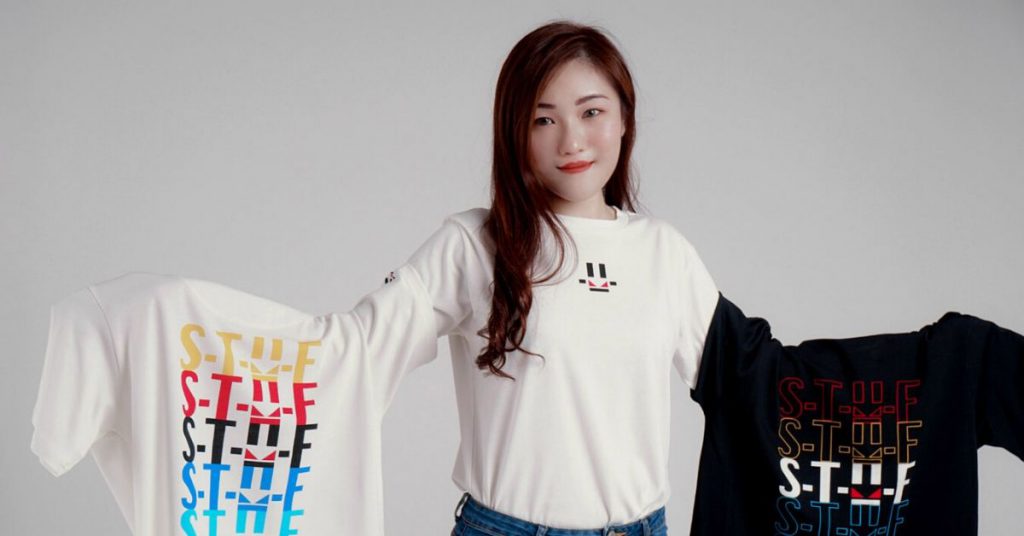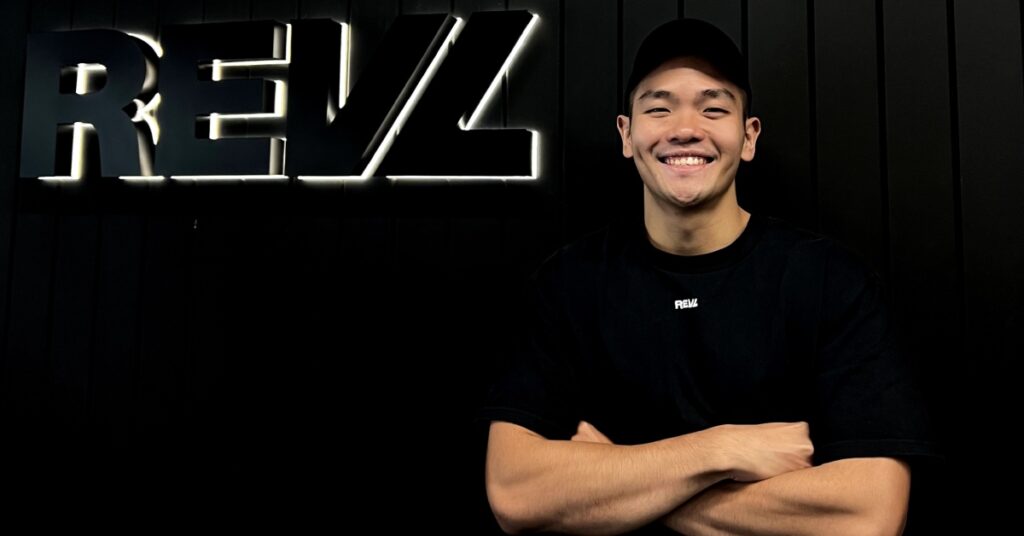Many of us are already aware of the effects of fast fashion on global warming, but microplastic pollution caused by synthetic fabrics in the clothing we wear is still something that’s not discussed enough in Malaysia.
Not only is there the possibility of these synthetic materials (which are heavily treated with various chemicals) rubbing off toxin on our bodies, but when these clothes are later discarded, they end up in landfills where they leech these chemicals into the earth too.
So, when this one Malaysian woman with a passion for design and fashion wanted to start her own brand, she knew that she didn’t want to further contribute to the above issues.
Instead, in September, 2019, Estee Chan decided to launch S-T-U-F, an eco-streetwear brand that uses eco-friendly fabric for its clothing.
Baby Steps Towards A Sustainable Lifestyle
When Vulcan Post asked her why she decided to launch a streetwear brand, Estee replied that it was because streetwear is part of Malaysia’s popular culture.
Furthermore, S-T-U-F’s first launch has been strictly t-shirts, something that’s basic and essential for us.
“It’s a baby step for everyone to start embracing a more sustainable lifestyle to reduce waste as much as possible,” she explained.
To align with the brand’s motto, ‘Save The Uncertain Future’ (which is also where the brand name comes from), Estee ensures that the entire process from sourcing to manufacturing the garments is eco-friendly.
During the interview, she also brought up a point which I hadn’t ever thought about, but do see some truth in:
Sustainable clothing offers timeless design and is made to last long as it doesn’t follow fast fashion trends where [designs go out of date fast and] fashion items are discarded after a few wears.
Estee Chan, Founder & CEO, S-T-U-F
But with all this talk of sustainability and eco-friendliness, what exactly are S-T-U-F’s shirts made out of?
Keeping It Au Naturel
TENCEL™, an Austrian brand of wood based fibre called lyocell, is what the fabric is made of.
The fabric is certified as biodegradable and compostable as it’s created from the wood pulp of Eucalyptus trees grown in sustainably managed plantations, and produced through an award-winning closed-loop technology.
This technology involves a spinning method that continually reuses a non-toxic solvent and recycles processed water to obtain the fibre.
“There is only a little energy used and a small amount of solvent emitted through wastewater which is then degraded in a biological wastewater treatment plantation,” Estee explained to us.

Apparently, TENCEL™ lyocell also produces 15 times fewer carbon emissions than synthetic fibres, and it doesn’t necessarily include any bleaching.
It’s widely used in the making of bedsheets as it’s soft to the touch, and Estee shared that it’s versatile enough to be blended with other fibres to make trousers and undergarments too.
Besides how eco-friendly the fabric is, Estee also chose to use it because it adapts well to both warm and cold climates, so it fitted Malaysia’s humid, tropical climate just perfectly.
Conveniently, it also fitted S-T-U-F’s alternative brand motto, ‘Solve The Unpleasant Feeling’.
A One-Woman Show
Estee spent about RM50,000 in capital to establish S-T-U-F, and one of the strategies she’s currently using to keep costs as low as possible is by running the brand as a one-woman show.
“Since I do not hire any staff to run the business, I am able to eliminate all the staff costs by working on sourcing, designing, operating, marketing, etc. all alone,” she said.
“Also, I do not have any fixed costs as my marketing channels are online based via social media.”
This works out for her because TENCEL™ lyocell, while beneficial for wearers and the environment, is an innovation that is pricier than the manufacturing of synthetic fibres.

Pure TENCEL™ lyocell fabric is also rather glossy, so Estee makes S-T-U-F’s fabric out of 50% TENCEL™ lyocell fibre and 50% cotton which reduces the gloss and further helps with keeping costs low.
While S-T-U-F’s shirts still have to be sold at a higher than average market price due to the fabric, Estee decided that she wanted to apply an honest pricing strategy to maintain a 1x markup (compared to the traditional 4-7x markup) and make it more affordable for Malaysians.
She’s hoping that this will encourage more of us to practice a sustainable lifestyle alongside conscious consumption.
To increase brand visibility, she’s set up several pop-up stores around Klang Valley in the past 3 months to showcase the material and let new customers feel it for themselves, and she plans on doing more of this.
Start Small, Dream Big
Currently, S-T-U-F only has 2 colour options for 2 minimalistic t-shirt designs (all done by Estee herself), but she plans on releasing more colour variations and introducing a customisable element for the upcoming collection.
When asked what she’s planned for S-T-U-F’s future, Estee said that she wants to increase the brand’s product range with different natural fabric choices for customers, though TENCEL™ lyocell fibre will remain the main material in all of them.
She also hopes to familiarise Malaysians with the sustainable material before subsequently introducing the brand to the Southeast Asian market to inspire more people to practise a sustainable lifestyle.
- You can read more about other Malaysian startups we’ve written on here.
Featured Image Credit: S-T-U-F












